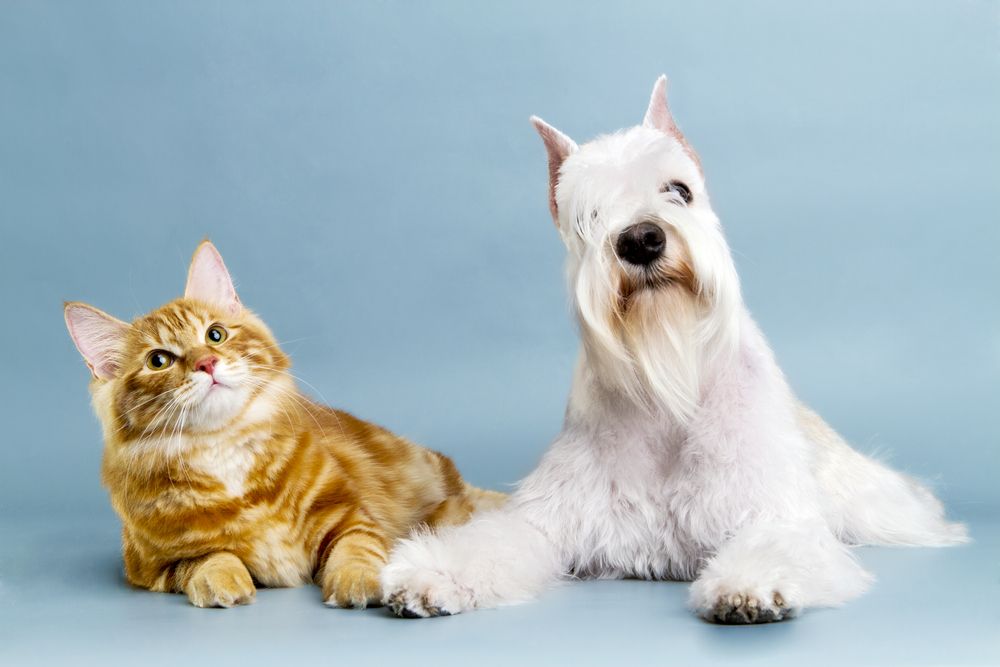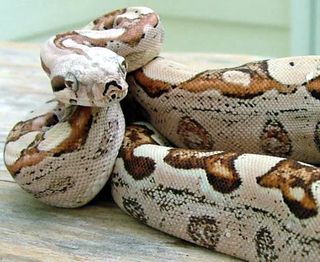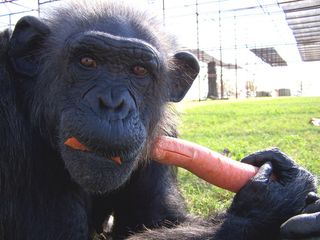
Advocates for Humane Treatment Welcome Scrutiny, If It's Honest (Op-Ed)

Wayne Pacelle is the president and chief executive officer of The Humane Society of the United States (HSUS). This Op-Ed is adapted from a post on the blog A Humane Nation, where the content ran before appearing in Live Science's Expert Voices: Op-Ed & Insights.
In an era of sweeping change in communications, the long-standing principles of American journalism are being tested and challenged. Some journalistic principles are enduring, however, and for good reason. The enterprise depends on a commitment to establishing and reporting facts, and to communicating them with accuracy and fairness. This is a foundational component of a civil and democratic society.
This is one of the reasons for my disappointment in the tone of coverage given to The HSUS by more than a few members of the agricultural press over the last several years. Some writers with industry trade journals and other information outlets in the sector have settled into an unquestioning reliance upon false claims about The HSUS, including those being spun by public-relations operative Rick Berman, who's fought the medical community on tanning beds and trans fats, Mothers Against Drunk Driving on alcohol use and automobiles, unions on minimum wage issues, and anti-smoking groups on behalf of major tobacco companies.

At one level, it's a boon for an advocacy organization to have a Darth Vader-type adversary, since it reminds supporters of our effectiveness and the stakes. In the time that Berman has been conducting his brand attack, we've driven rather extraordinary changes in society and dramatically increased in size. He's an extreme example of the third-party players in American politics who will say just about anything to sow division and polarization, mainly to line their own pockets. [The Koch Brothers Are Still Trying to Break Wind (Op-Ed)]
At The HSUS, we don't expect everyone to agree with all of our positions, and we understand we'll get push-back on our attempts to stop extreme confinement of animals on industrialized farms, to stop tail-docking of cows, and to advance other limited reforms. We get it, and that's all part of the discourse and rough-and-tumble of debate about serious issues. It's also one of the reasons that we operate with such transparency, and are so active in communicating what we do and what we stand for.
Here are some specific elements of our governance and our approach that I'd ask you to consider:
Sign up for the Live Science daily newsletter now
Get the world’s most fascinating discoveries delivered straight to your inbox.
- In addition to having hundreds of people in leadership on our national, state and issue councils, The HSUS is governed by a 27-member, unpaid, board of directors. That board includes the CEO of a Fortune 500 company; the retired managing partner of the Washington office of one of the biggest law firms in the United States; the former Secretary of the U.S. Senate; a Rhodes Scholar, Olympian, and former member of the U.S. House of Representatives; medical doctors who have spent their careers at Harvard and the Mayo Clinic; the CEOs of several major companies; and a host of other dedicated, sincere, and professionally successful people who are highly selective about their philanthropic commitments. These people not only care about animals, but they are sophisticated when it comes to matters of business and non-profit management. They take no money from The HSUS, and they are among its most generous donors. Not one of them would be party to malfeasance or misuse of funds, and certainly not all of them!
- The caricatures of The HSUS — which has the highest ratings from Charity Navigator and the Better Business Bureau — as either a super-rich enterprise that drains money from animal shelters or an organization that is working to stop all animal use, are ludicrous on their face. The founders of The HSUS were consummate pragmatists, and one great, original purpose for the organization was to complement the work of local humane societies by working at a national level. It is no accident that as we have grown, so has the rest of the animal-welfare movement, with a proliferation of species-focused organizations and a general surge in the fortunes and professionalism of the sheltering and rescue communities. These other groups don't wish to see The HSUS duplicate their efforts, but to augment the broad work of animal protection in ways that they cannot.
- For 60 years, The HSUS has been about protecting all animals, including, but not limited to, companion animals. Our magazine is called "All Animals," our website screams out "all animals," my daily blog covers the vast array of our programs affecting hundreds of species. It's all available for any discerning person — a supporter, a donor, a journalist, or a critic — to learn about our work. If we are misrepresenting ourselves as the group that runs local animal shelters, we sure have a funny way of showing it, shouting from the rooftops as we do about the many campaigns we run, including core initiatives on dog-fighting, puppy mills, whaling, sealing, gestation crates, bear baiting, lead ammunition, and dangerous exotics as pets — many of them issues that no local societies have the reach or the resources to work on. Why is it hard to believe that there are millions of Americans who care about fighting for the interests of all of these animals, as well as the companion animals we also help in so many ways?

- There are countless ways to help animal shelters and rescues that don't involve pass-through grants. We provide training and resources to professionalize the field, host the nation's largest trade show for animal shelter and rescue professionals, publish "Animal Sheltering" magazine and animalsheltering.org, and sponsor a national public-service advertising campaign together with Maddie's Fund and the Ad Council that, in the last three years, has resulted in more than $150 million in advertising to promote local shelters. When The HSUS conducts rescues of animals from puppy mills, dog-fighting operations, or cruelty or hoarding cases, we fill gaps in the nation's humane infrastructure or handle cases that might bankrupt some local groups.
- The television ads that we run — which are a small part of our promotions — specifically include language that says "Local humane societies are independent from The HSUS." Could we be more clear? Throughout our website, this sort of language is reinforced: "Local humane societies and SPCAs are independent entities and are not run by The HSUS or any other national entity. The HSUS works with local humane societies and supports their work through training, evaluations, publications, and other professional services."
- We have always done so much more than just help animal shelters, a core component of the animal-welfare movement, but just one part of it. While we've never laid claim to running every local shelter — and no group does nor could they ever perform such a task, since there are thousands of such groups — let me mention that the HSUS provides hands-on care to thousands upon thousands of animals, conducting an extraordinary range of programs. What's more, the domesticated animals pictured in our television ads were rescued or cared for by our staff, or were the subject of an investigation we conducted.
- Finally, let me ask how you'd react, as individuals who are proud of agriculture, if some animal advocate wrote a column saying the American Farm Bureau Federation was dishonest because it should be giving all of its money to individual farmers, or the National Pork Producers Council should give all of its money to individual pig farmers? It would be laughable, since these organizations have broader responsibilities to represent the interest of the entire industry. One would think that person extraordinarily naïve for making such an unsophisticated, unknowing claim about those organizations, right? It is no different when such a disingenuous charge is made about The HSUS and other national animal welfare groups.

The HSUS is highly scrutinized because it tackles tough, controversial issues. We talk about all the issues we focus on, we are the No. 1 animal-care provider in the United States, and we campaign aggressively to advance our animal-welfare agenda. Our adversaries would rather that we not focus on them, and we understand that. But this is who we are, and we're going to continue that work because we think that it's right and because that's what our members support. We are not troubled by critical questions, and we are always willing to answer them. And while we'll always deal with people who will try to define us in false ways, we'll continue to hope that serious-minded journalists — whether they work for an industry trade publication or a general news-gathering organization — will work to separate fact from fiction and treat the broad topic of animal welfare with the seriousness it deserves.
Pacelle's most recent Op-Ed was "In New York, the Age of Horse and Buggy Has Passed" This article was adapted from "An Open Letter to Agriculture Journalists and Leaders," which first appeared on the HSUS blog A Humane Nation. The views expressed are those of the author and do not necessarily reflect the views of the publisher. This version of the article was originally published on Live Science.












